#a social history of truth
Explore tagged Tumblr posts
Text
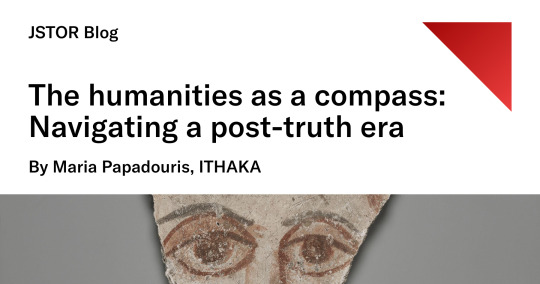
In a post-truth world, where emotional appeal sometimes drowns out factual accuracy, the humanities are our compass. They help us question the narratives we’re presented with, cultivate empathy, and dig deeper into the layers of truth behind media, politics, and culture.
By embracing literature, history, and the arts, we enhance our critical thinking and foster a connection to the human stories that shape our collective experience. 💭
Check out our latest blog post on how the humanities equip us to navigate the complexities of a world filled with conflicting truths.
#jstor#jstor blog#humanities#literature#history#the arts#social sciences#culture#politics#media#post-truth
1K notes
·
View notes
Text
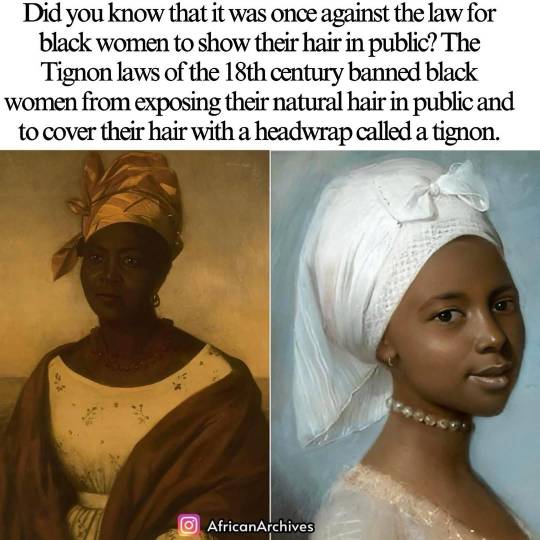
The Tignon laws of the 18th century were laws that banned black women from exposing their natural hair in public.
Their hairdos was obscuring the status of the white women and this threatened the social stability. The law would control colored women “who dressed too elegantly..”
Resembling today’s West African Gele, a tignon is a type of head-covering. It is a large piece of material wrapped or tied around the head to form a kind of turban concealing the hair.
Tignons were worn by free and slave Creole women of African descent in Louisiana from 1786. Historically, their prevalence was as a result of sumptuary laws passed in 1786 under Governor Esteban Rodriguez Miró.
These prescribed and enforced appropriate public dress styles for women of color in a white-dominated society. Hence, they were made as a way of regulating the appearance of black women in the U.S.
During the period, when black enslavement in America was at its peak, and places like New Orleans was unique in its high population of gens de couleur libres (free people of color), black women’s beauty and features often attracted white men who approached them as suitors.
This enraged white women who perceived them as competitors. Evidently, African women competed openly with white women through elegant dressing, including adorning their textured hair with gems, beads, and other accents that made them stand out from white women and possessing great beauty.
To take care of this perceived menace, series of sumptuary laws birthing the Tignon Law were put in place in order to stop white men from pursuing and engaging in affairs with women of colour, “while also being a class signifier,”
#black history#black women#black hair#naturalhair#natural hair#Tignon laws#its not just hair#black people#american history#headwraps#headwear#racism#oppression#discrimination#antiblackness#social issues#teamnatural#natural hair care#naturalhairhow101#history#african history#truth#perspective
590 notes
·
View notes
Text



The new trend: Democratic Socialism.
For everyone who has studied history, we easily connect the dots and label it communism/socialism. The trouble is our young people are missing giants gaps of history.
(I live in Texas.)
In high school, students get:
- 2 semesters of diluted Texas history
- 2 semesters of diluted world history
- 1 semester of diluted government
- 1 semester of diluted economics that also includes personal finance (but doesn’t teach how to gain Financial Freedom)
Last year, we had a kid transfer in from Missouri. I was in that ARD (he needed some additional learning modifications) and listened to his class needs. He was an 18yo and ready to graduate in MO; in Texas - based on his classes - he was labeled a 10th grader. Sounds crazy.
Just because you think each state is teaching similar things; they’re not. (2) semesters is not enough time to cover the expanse of history. It’s not enough time to cover the last 50 years! So, it’s no wonder our kids are learning less and less.
Our college kids are not being taught to think. They’re being manipulated and indoctrinated. Many don’t know the difference between facts and feelings or truth and propaganda.
We must teach our kids and our society ALL of history (the great and the ugly) so that we can learn from it and attempt to not repeat it. We need to discuss things and keep our communication open. We need to meet for coffee and depart as people who agree, or disagree, and stay people and not someone who’s less of a person for having a different opinion or path for a solution.
“Those who do not know history are destined to repeat it.”

#truth#common sense#msm is the enemy#globalist playbook#karl marx#socialism#communism#democratic socialism#study history
79 notes
·
View notes
Text

#History#american history#truth bombs#facts#white Lies#whitewashing#whitewashed history#white supremacy#racism#social justice#equality#end hate#anti-racism#racial equality#stop racism#no to hate#dismantle racism
90 notes
·
View notes
Text
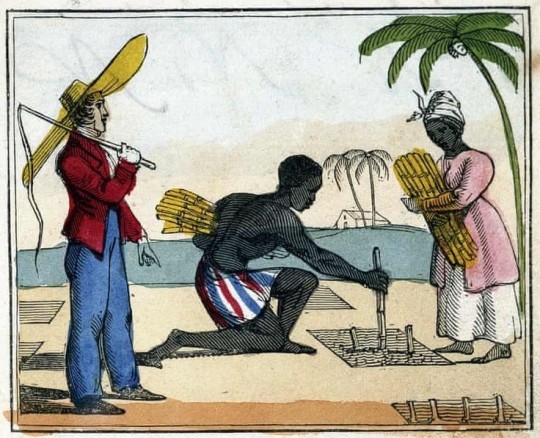
Nonsensical Justifications for Colonialism and Slavery
White supremacists have long used flawed and ridiculous arguments to justify colonialism and slavery. Here’s a breakdown of some of the most common ones, including the infamous “Romans colonized Britain” argument and why they fall apart under scrutiny:
1. "We were civilizing them!"
The myth of "civilizing the savage" suggests that enslaved and colonized people benefited from European influence through exposure to Western religion, language, and culture.
The Reality:
Many African and Indigenous societies were already advanced with their own systems of governance, art, education, and spirituality. Colonizers erased these traditions, claiming “superiority” to justify their theft, exploitation, and violence. The idea that destroying someone’s culture equals “civilization” is absurd.
2. Twisting the Bible
Slavers and colonizers misused scripture to justify their actions, with the “Curse of Ham” myth being one of the most infamous examples.
The Reality:
The Bible was weaponized for greed. This so-called "curse" doesn’t justify anything. Religious distortion was a tool to sanctify oppression—not a moral basis for it.
3. "Might makes right!"
This argument suggests that European colonialism was justified because they had the power to conquer others.
The Reality:
Just because you can conquer someone doesn’t mean you should. Moral superiority has nothing to do with military or technological strength. If anything, it highlights the colonizer’s lack of ethics.
4. Pseudoscientific Racism
During the 18th and 19th centuries, pseudoscience claimed Black people were biologically inferior, using fake studies to justify enslavement and colonization.
The Reality:
Modern science has long debunked these racist myths. Race is a social construct. These ideas were nothing more than fabrications to support systems of white supremacy.
5. "Slavery built the modern world, so it was necessary!"
Some argue that slavery and colonialism were essential for progress and economic development.
The Reality:
Yes, slavery enriched European nations—but at the expense of millions of lives and cultures. Calling theft and exploitation "necessary" ignores the humanity of the people whose labour and resources were stolen. Progress didn’t have to come at this cost.
6. "They were doing it too!"
This argument points to the existence of slavery or conquest in other parts of the world to claim that European colonialism was no different.
The Reality:
Slavery in other societies wasn’t on the same industrialized scale as transatlantic chattel slavery. European colonialism was uniquely dehumanizing and global, driven by racial hierarchies and capitalism. This deflection doesn’t erase its unprecedented brutality.
7. "Europeans brought railroads and roads, though!"
Colonizers often argue that colonized countries "benefited" from infrastructure like railroads, roads, or education.
The Reality:
These infrastructures were built to extract resources, not to help local populations. Any "benefits" came at the cost of cultural genocide, violence, and systemic exploitation.
8. The Roman Colonialism Argument
One of the most common deflection tactics is: "Romans colonized Britain, so why is European colonialism any different?"
The Claim
Britain benefited from Roman roads, infrastructure, and culture—just like colonized nations benefited from European colonialism.
The Reality:
False Equivalency: Roman rule wasn’t rooted in racial hierarchies or global dehumanization like European colonialism.
No Cultural Erasure: Britain retained its language and cultural identity after Roman rule. Colonized nations often lost entire civilizations.
Infrastructure for Whom? Roman roads benefited the Romans, just like colonial railroads served European exploitation—not the local populations.
Context Matters: Roman colonization happened 2,000 years ago in a different historical context, whereas European colonialism was industrialized, racialized, and left lasting global scars.
9. Dehumanization as Justification
Colonizers argued that enslaved or colonized people weren’t fully human, making it “acceptable” to enslave, exploit, and kill them.
The Reality:
This was a deliberate tactic to suppress moral opposition. The humanity of colonized and enslaved people has always been undeniable. Dehumanization was simply a tool to enable greed.
10. "It was legal back then!"
Some claim that colonialism and slavery were justifiable because they were legal in their time.
The Reality:
Legality does not equal morality. Systems of oppression were legalized to protect the interests of those in power—not because they were just or ethical.
11. "Colonialism helped ‘discover’ these lands!"
This claim suggests that colonizers “discovered” places that were already inhabited.
The Reality:
How do you discover something that already exists? Indigenous peoples have been living on those lands for thousands of years. This argument erases the sovereignty of entire civilizations.
12. "Colonized people should be grateful!"
Some claim that colonized nations should feel grateful for the supposed “progress” Europeans brought.
The Reality:
Grateful for what? Centuries of genocide, stolen wealth, and systemic underdevelopment? This argument ignores the violence, exploitation, and long-term harm caused by colonization.
13. "It was God’s will."
Some argued that colonization and slavery were divine mandates, claiming God wanted Europeans to dominate the world.
The Reality:
Using God to justify theft and murder is not only morally bankrupt but blatantly self-serving. Divine will conveniently aligned with their greed and conquest.
14. "Slavery wasn’t that bad!"
Some argue that enslaved people were "better off" under slavery than in their own cultures.
The Reality:
This is a grotesque lie designed to downplay the horrors of slavery: forced labor, families torn apart, physical torture, and complete denial of freedom.
15. "Colonialism brought democracy to the colonized!"
This suggests colonization was necessary to teach “uncivilized” nations about democracy and governance.
The Reality:
Colonizers imposed authoritarian rule, crushed resistance movements, and stifled independence for centuries. Any “democracy” was designed to serve colonial interests, not the people.
Final Thoughts
Every justification for colonialism and slavery is rooted in greed, pseudoscience, and distorted morality. These arguments were never about bringing progress or civilization—they were excuses to legitimize theft, genocide, and exploitation. Calling out these nonsensical defences is essential to dismantling the lingering effects of colonialism and racism today.
#white supremacy#white history#african history#decolonization#pseudoscience#colonialism#anti colonization#critical race theory#oppression#social justice#truth#anti blackness#anti racism#historical analysis#historical context#white people#black people#black history#black#black tumblr#blacktumblr#pan africanism#black conscious#africa#white people are evil
29 notes
·
View notes
Text
"It is an old experience that someone who has taken a wrong path for a long time will continue on this path to the end. Which shows that the old saying "resist the beginnings" will always remain true." Golo Mann.
#quote of the day#quote of today#golo mann#experience#directions#paths#ways#time#history#lessons#lessons of history#life lessons#resist#resist the beginnings#nip it in the bud#truth#truth social#truths#fascism#fight fascism#sins of the fathers#never again
11 notes
·
View notes
Text
A core aspect of Luciferianism is educating oneself on how systemic issues contribute to oppression. Here’s an essay I wrote for my local grassroots police abolitionist collective (@WallsDownCollective , @Stopthestackyyc on Instagram) about how the legal system uses psychological warfare to control and oppress its citizens:
The Canadian Legal System Acts as a Form of Psychological Warfare Against Society's Most Vulnerable Undesirables
By Thrashkink_art , Thrashkink_coven
The Canadian legal system mirrors psychological warfare tactics in its treatment of marginalized populations, particularly the unhoused, Indigenous peoples, and racialized communities. Psychological warfare is defined as the strategic use of fear, intimidation, and disinformation to manipulate and control behavior, breaking down the mental defenses of targeted groups. In many ways, the Canadian legal system engages in similar practices, creating a constant state of fear, confusion, and helplessness for society's most vulnerable undesirables, which aligns with the psychological aspects of torture as defined under Canadian law and international frameworks like the UN Convention Against Torture (UNCAT).
According to Section 269.1 of the Criminal Code of Canada, torture is defined as:
> Any act or omission by which severe pain or suffering, whether physical or mental, is intentionally inflicted on a person for purposes such as obtaining information or confession, punishing them for an act they or someone else has committed, or intimidating or coercing them.
This definition aligns with the United Nations Convention against Torture (UNCAT), which Canada ratified in 1987. Under UNCAT, torture is described as:
> Any act by which severe pain or suffering, whether physical or mental, is intentionally inflicted on a person for purposes such as obtaining information, a confession, punishment, intimidation, or for reasons based on discrimination, when such pain or suffering is inflicted by or with the consent of a public official.
The mental suffering aspect of torture is significant in Canadian law, given that psychological harm can be as debilitating as physical harm. Psychological torture can include methods such as:
- Restriction from basic necessities or functions like food or sleep
- Threats of violence against the person or their family
- Isolation or solitary confinement
- Humiliation or degradation
- Sensory deprivation or sensory overload
Psychological warfare (PsyOps), while more associated with military operations, involves using tactics deliberately designed to manipulate emotions, motives, and behavior of enemy governments, groups, or populations through fear, intimidation, or misinformation. Psychological warfare aims to demoralize the enemy, break their will to fight or resist, or influence public perception for the purpose of domination.
These tactics can include:
- Disinformation and propaganda campaigns
- Fear-inducing threats or displays of power
- Misinformation to undermine morale
- Intimidation tactics aimed at creating confusion or dissent
By its own definitions, the Canadian government has repeatedly used psychological warfare against Indigenous peoples, other nations, and its own citizens. Here are just a few notable examples:
Forced Assimilation of Indigenous Peoples through Residential Schools and “adoption” programs
The “Indian Residential School System” and “The Sixties Scoop” separated Indigenous children from their families, erasing their languages, cultures, and identities. This systemic abuse aimed to replace Indigenous identity with Euro-Canadian values, leaving a lasting legacy of trauma and cultural loss.
2. The “Indian Act" and Ongoing Control of Indigenous Peoples (1876-Present)
The Indian Act is a longstanding policy used to control nearly every aspect of Indigenous life in Canada. This paternalistic system restricts land, governance, and identity, causing generations of psychological harm. By undermining self-determination and imposing Western legal structures, it fosters dependency and marginalization in Indigenous communities.
3. The Oka Crisis (1990) and Ongoing Environmental and Resource Development Conflicts with Indigenous Communities
The Canadian government and military used psychological tactics to intimidate Mohawk protesters defending sacred land. Media portrayed them as violent and unreasonable, isolating them from public support and fueling fear around Indigenous sovereignty movements.
The Canadian government and corporations still use psychological tactics to portray Indigenous protesters as threats to economic stability. Through legal actions, disinformation, and surveillance, they aim to divide communities and undermine resistance through fear and intimidation.
4. Internment of Japanese Canadians During WWII
After the attack on Pearl Harbor in 1941, the Canadian government interned thousands of Japanese Canadians, seizing their property without consent. This fostered fear, suspicion, and isolation, creating a lasting sense of powerlessness.
5. Cold War Surveillance and Propaganda (1950s-1980s)
Canada spread fear of communist infiltration through propaganda and covert operations. Working with U.S. agencies, the government used media, speeches, and surveillance to manipulate public opinion, target left-wing socialist groups, and foster loyalty to the state.
6. “Anti-Terrorism” Policies Post-9/11
Canada enacted anti-terrorism laws that increased airport surveillance and profiling of Muslim Canadians and immigrants, fostering fear and suspicion. The wrongful arrest and torture of Maher Arar exposed the profound psychological harm these policies inflicted on individuals and entire communities.
7. Project MKULTRA: Canadian Collaboration with CIA (1950s-1960s)
Canada, through the Allan Memorial Institute in Montreal under Dr. Ewen Cameron, participated in MKULTRA, a CIA mind control program (yeah, seriously). Patients were subjected to brutal experiments like sensory deprivation and drug-induced comas, causing lasting psychological trauma and personality disorders.
If the Government has been capable of committing such atrocities in the past, there is no reason to assume they could not repeat these actions in the present. Despite the pretense that such tactics are behind and beneath them, the Canadian Government continues its use of psychological warfare today—and it’s being used against all of us.
Canada's legal framework is rooted in the imperialist systems of English and French colonization. The adoption of British common law and French civil law created a legal environment that prioritized colonial interests over those of Indigenous nations, reinforcing a hierarchy that placed European settlers at the top. This system continues to prioritize the protection of capital over the well-being of the people, law enforcement serves the interests of the privileged few rather than the broader community.
A lack of affordable housing and support services means that individuals have nowhere to turn when they face financial hardship, forcing many into criminalized survival tactics like squatting. The legal system's criminalization of homelessness through bylaws that punish basic survival activities like sleeping in public, loitering, or panhandling mimics psychological warfare tactics by using constant threat and intimidation to control behavior. These laws lead to fines, arrests, and further entanglement within the legal system, making it nearly impossible for individuals ticketed for minor infractions to escape the cycle of homelessness. For someone experiencing homelessness, even a minor fine can be life ruining. Failure to pay these fines can lead to additional legal penalties, including warrants, increased fines, wage garnishments, loss of driving privileges, or even incarceration, contributing to systemic marginalization. Law enforcement is often concentrated in areas with high populations of marginalized individuals, leading to increased surveillance and policing of homeless people and those struggling with addiction.
Canada has historically underfunded mental health services and addiction treatment, leaving many without necessary support. As a result, individuals turn to substances as a coping mechanism. This is systematic entrapment. By arresting individuals for drug use or possession rather than providing treatment, the legal system fails to recognize addiction as a complex health issue that requires compassion, understanding, and comprehensive support rather than punishment.
Encampment raids intentionally prey on homeless individuals, many of whom are dealing with addiction and mental health issues as a psychological manipulation tactic—disrupting the only semblance of community or safety that unhoused people may have, leaving them more isolated, vulnerable, and afraid with nowhere to go. The destruction of shelters and personal belongings during these raids serves not only to enforce legal compliance but also to demoralize individuals and instill trauma, contributing to mental suffering and despair and enforcing the idea that there is no safe place for them to reside. The unpredictability of these raids creates a state of constant fear and sleep deprivation, pushing people to hide in more dangerous locations and stripping them of their autonomy. Rather than offering support, law enforcement criminalizes their circumstances, effectively using fear and violence to maintain control—methods reminiscent of psychological warfare. This increases vulnerability to violence and exploitation, while framing unhoused people as criminals rather than victims of systemic failure. This stigma prevents public empathy and keeps the cycle of isolation and marginalization intact.
For racialized communities, particularly Black and Indigenous people, the legal system becomes a tool of surveillance, over-policing, and wrongful criminalization. The criminalization of drug offenses disproportionately impacts these communities, with predatory laws and wrongful convictions fueling cycles of poverty, unemployment, and legal entanglement.
The legal process itself becomes a form of psychological warfare, especially for individuals unfamiliar with legal jargon or unable to afford proper representation. Individuals with mental health issues often struggle with conditions that make it difficult to manage daily responsibilities, including remembering court dates or understanding legal proceedings. This lack of support can lead to missed appearances, resulting in additional charges or penalties. Unhoused people often lack access to basic resources such as stable housing, transportation, and reliable communication. Without a permanent address or means of transportation, getting to court on time becomes a significant obstacle. Without access to phones or mail, receiving important notifications about court dates is not possible. Entrapment is a large part of the process of psychological warfare.
Even with Legal Aid and payment plans, the imposition of fines and legal penalties can create a financial burden that may take years or even decades to pay off. This leads to a cycle of accumulating debt, where unpaid fines incur additional interest, late fees, or legal costs, compounding financial burden over time. This debt can become a source of significant stress and anxiety, further impacting mental health, stability, and the ability to navigate complex legal battles with sound mind.
Encounters with police can lead to criminal records that hinder future opportunities. Securing stable employment is significantly harder for those with criminal records, forcing them into lower-paying, unstable jobs that make it hard to keep up with financial obligations. The prolonged burden of fines can divert essential resources away from basic needs like housing, food, and healthcare. Individuals find themselves prioritizing debt repayment over their well-being, leading to detrimental effects on their health and stability. With a significant portion of income directed toward paying off fines, it becomes nearly impossible to save for future goals, such as education, home ownership, or starting a business. This stagnation in economic mobility perpetuates cycles of poverty, further entrenching individuals in financial hardship. The effects of prolonged debt from fines extends beyond the individual. Families also bear the burden of financial instability, leading to decreased opportunities for children and perpetuating cycles of disadvantage across generations. Those facing homelessness also run the risk of losing custody of their children, further exasperating mental distress. Vulnerable people may withdraw from personal relationships out of fear that their legal troubles will negatively affect those around them, leading to further isolation. The stress associated with long-term debt and legal obligations contributes to mental health issues like anxiety, depression, and suicidal ideation.
If you’re sick, cold, hungry, and scared all the time, do you really have the ability to make informed decisions about complex legal situations?
The prolonged nature of extended court proceedings, fines, and legal entanglements leave vulnerable people in a constant state of anxiety and uncertainty, leading to chronic stress, affecting mental health and destabilizing morale. The psychological toll of enduring long court proceedings accumulates over time. As individuals face repeated delays, continuances, and rescheduled hearings, the emotional weight of their situation can become overwhelming. Legal delays are used as psychological tactics to wear down individuals, making them more likely to accept plea deals or coerced confessions just to escape the process. This method of mental exhaustion mirrors classic psychological torture tactics, where prolonged stress and uncertainty break down an individual's resistance . The pressure to resolve a case quickly, even at the expense of a fair outcome, leads vulnerable people to make decisions they wouldn’t have otherwise considered. While some strong people can attempt to build resilience in the face of these challenges, the overwhelming repeated stress of prolonged court proceedings over multiple years can wear down even the most resilient individuals, leading to burnout and submission.
The worst part of this entire situation is that you don’t have to break the law to find yourself within it. This can happen to you at any time. People who are falsely accused of crimes have no choice but to navigate the complexities of the legal system. The burden of proof rests heavily on the accused to demonstrate their innocence. This process can be lengthy and exhausting, consuming significant time, money, and emotional energy, even if they are ultimately exonerated. Many must engage with law enforcement, endure court appearances, and deal with the repercussions of being labeled a criminal, often without any compensation for the emotional, psychological, and financial toll of their ordeal, leaving individuals struggling with debt, job loss, and PTSD.
This is particularly devastating, for marginalized and racialized communities. Systemic racism within the legal system results in wrongful arrests and disproportionate punishment of Black and Indigenous individuals, targeting those already struggling under oppressive societal structures. Black and Chinese men were disproportionately targeted by Canada's anti-drug policies, which framed them as immoral degenerates and societal threats. 80% of cannabis-related criminal offenses in Canada were for possession. Since legalization, fewer than 400 Canadians have been pardoned for past possession charges (as of 2021), despite an estimated 10,000 eligible for relief. Cannabis laws disproportionately targeted racialized and Indigenous communities and those with lower incomes. This situation effectively subjects them to a form of legal slavery, while the Canadian government now profits from a multi-billion-dollar industry. Systemic racism within the legal system contributes to the over-policing of these communities, increasing the likelihood of wrongful charges.
The appeal process is slow, complex, and broken. Individuals seeking to overturn wrongful convictions must navigate a convoluted system that prioritizes procedural technicalities over justice. Delays can stretch for years, leaving innocent people in limbo while their lives are effectively put on hold. Likewise, those who have been victimized often avoid seeking justice out of fear of having to repeatedly relive their trauma through years long, expensive, legal interactions with their abuser.
If you are victimized by a law enforcement officer, seeking justice through the legal system can be life threatening. Police violence, harassment, and gang stalking (where individuals are constantly monitored and harassed by members of police) create an environment of paranoia, leading to mental health issues like PTSD and depression. People avoid participating in protests or speaking out against police misconduct if they believe that police will respond with violence or heavy-handed charges. When laws are used to target dissenters, people are forced to weigh the risks of speaking up against potential legal repercussions, physical violence, or death by execution via police. People are led to believe that reporting is futile or too dangerous. Experiences with law enforcement and the criminal justice system are often traumatic, vulnerable people who have faced arrest often develop PTSD and other trauma-related conditions and injuries as a direct result. This psychological toll suppresses dissent, making it nearly impossible for grassroots organizations to mobilize and advocate for themselves. This undermines their right to free expression and assembly and dissuades individuals from exercising their rights or making any attempt to challenge the legal system or its abuses, perpetuating a cycle of silence and oppression that leaves vulnerable communities even more isolated.
The Canadian legal system enforces a system of punishment and control that mirrors the psychological tactics used in military operations. This deliberate use of psychological pressure ensures that the most vulnerable remain trapped within the system, unable to escape or challenge the structures that oppress them. It systematically uses fear, confusion, abuse, and intimidation to control vulnerable groups, suppress dissent, and maintain societal hierarchies. The system perpetuates cycles of isolation, poverty, and trauma whilst providing no alternatives or escape. The purpose of this form of psychological warfare is to push vulnerable people into greater compromising situations until the inevitable result incarceration or death, either by police violence, prolonged health complications, or suicide. This system is not only predatory, but inherently dangerous.
Mutual aid and collective support is the only way to effectively reduce our reliance on this predatory system. By the simple act of taking care of eachother, communities can develop self-sufficient, resilient networks that provide essential services without relying on exploitative government mechanisms. When individuals know they can rely on their community for assistance—whether through direct support or shared resources—it cultivates a sense of belonging and collective responsibility. This resilience is crucial in times of crisis. When communities are united, they can challenge oppressive systems more effectively, creating a collective voice that demands accountability and ensures that no one is left behind.
Thank you for reading.
#police abolition#mutual aid#community care#revolution#truth and reconciliation#black indigenous#indigenous#black lives matter#social justice#radical education#feminism#equal rights#equality#oppression#free all oppressed peoples#systemic oppression#systemic reform#canadian history#canada#acab1312#all cops are bastards#all cops are bad#acab#black liberation#trans liberation#queer community#human rights#luciferian#luciferianism#mobilization
14 notes
·
View notes
Text
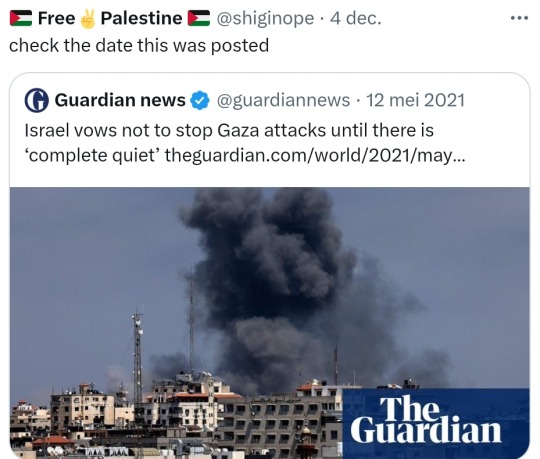
at this point anyone who cries out that "there was a ceasefire before oct. 7" is willfully ignorant
how would they like to explain the abovementioned confession from years ago?
#truly cant make this shit up#at this point#like bffr#current events#world#news#twitter#x#social media#truth#history#viral#trending#israel#palestine#gaza#jerusalem#humanity#genocide#humanitarian crisis#human rights
29 notes
·
View notes
Text
very happy Matt decided to clarify his stance on the genocide of the Palestinian people rn. Pretty unhappy with the way he worded it, who he centered in his video, and disappointed to see the responses to it on Twitter.
kinda scared to even post about it bc CR fans can get so defensive about their favorite white people that they can often leave little room for criticism or nuance. but man I have thoughts.
#lemme just say. if you have a public platform that has set a precedent for philanthropic work. messages of positivity and love.#and have called attention to various political and social conflicts *in stream*. & whose employees and cast members are vocal#on socials about political topics#then it is NOT unreasonable for fans to expect them to address one of the deadliest orchestrated conflicts in recent history#a literal genocide is happening. thanks in part to the US.#it is good that they donated as a company and as individuals. so good!#but to everyone saying that publicizing good deeds like donations is virtue signaling or demanding CR cast to show their support is#or that activism shouldnt be all about what you post bc then it becomes performative#are kinda missing the point. and theyre not listening to palestinians at all#a huge issue with this conflict & the way its being received in the western world - ESPECIALLY the US bc of its partnership w israel -#is the sheer amount of disgusting minsinformation and propaganda convincing ppl this genocide is either not that bad or that its necessary#everyday citizens CANNOT change foreign policy. we cant do anything!#so what have Palestinians been asking us to do?? SPREAD AWARENESS ON SOCIAL MEDIA. MAKE PEOPLE AWARE. UPLIFT PALESTINIAN VOICES. SHARE LINKS#SHOW PPL THE TRUTH.#and yes its hard! its difficult to watch what theyre going thru. but we HAVE to.#i didnt rlly like matts statement. he said he didnt have the spoons to engage in the discourse. which i get. god i get it.#but ive also seen many many creators/influencers who are also disabled or whose families are directly involved gather their spoons to help#and no one was asking CR to harm themselves in the name of helping palestine. we only wanted them to spread awareness#bc the comments on their tweet about finally donating were full of mostly white centrist takes not able to see any benefit to donating or#addressing the issue at all. which is EXACTLY why CR should addresss it. bc they can reach so many who dont understand#but theyd been radio silent for almost 5 months. i didnt like that he didnt really apologize. i didnt like that he centered himself#i didnt like his lowkey flippant language either. saying all that.. ridiculousness in regards to a genocide not well worded.#but i dont feel right holding that against him. should he have thought it through better? sure but i get it#& unfortunately his parting message left a bad taste in my mouth - one of positivity & self care & hugging each other#nice important words but it didnt feel like he was talking about ppl who are affected by this conflict. but rather ppl who are watching#it just felt like a very white thing to say in response to this. we are not burdened and easily victimized bc of it#we are responsible. and so we must center palestinians.#if i were him i wldnt have gone in detail about how hard the palestinian genocide is for me to watch.#but thats just me#*CORRECTION: radio silent for almost 4 months
11 notes
·
View notes
Text
As happy as it makes me to see these people lose I do worry that we will see some “family annihilator” stories come out of this. Lots of wives and kids might be in danger because “dad” went all in on DWAC and now he’s wiped out and facing severe consequences with which his toxically masculine ego just canNOT come to terms.
27 notes
·
View notes
Text
The USSR was an empire and that's good actually
Western "socialists" argue back and forth and back and forth about whether the USSR was an empire (bad) or not an empire (good). It has been revealed to me through my seances that the truth is that the USSR was an empire (good)!
Through glory and conquest the USSR brought Socialism In One Country to more and more people. Socialism in One Even Bigger Country every time! International Socialism requires territorial expansion. It is only through empire that true anarchist communism can be achieved."
It is through the dialectic of science and seance that the truth is revealed. You are welcome, my little kittens.
#ussr#socialist history#the truth#seance#materialism#empire#socialism in one country#wisdom#revelation#owning the liberal revisionists
3 notes
·
View notes
Text
"ALL ANIMALS ARE EQUAL BUT SOME ANIMALS ARE MORE EQUAL THAN OTHERS" -George Orwell/Animal Farm
youtube
#the truth#equality can never work because not everyone is the same#equal opportunity is better for society#equal opportunity is made by our choices but is not taken from you and opportunity costs exist#this is the difference between dominance and competence#ice nine kills did a song as an adaptation of what happens in the book Animal Farm#watch it because it's very good#hypocrisy in the victim mentality leads to bloodshed seen in the 20th century#learn from the 20th century history or repeat it#Youtube#ice nine kills#nature of the beast#animal farm#george orwell#never forget#socialism#marxism#communism#leninism#good intentions don't always lead to good consequences#it's because there is always a cost behind each decision and we choose what cost we're willing to take for something#the bolshevik revolution
2 notes
·
View notes
Text
Honestly it's not worth arguing with moscovites about history. All they know is propaganda. It has been propaganda ever since Peter decided to steal the name Rus from Ukraine and Belarus. They will tell you about how you don't know history while still thinking that ruzzia never genocided or ethnocided anyone. They will not even know any real historical event. They will have no idea about how ruzzia partnered up with Nazi Germany to break apart Poland, they will only say they fought Nazis. They will claim that they have never participated in slavery... but then they had slaves but then renamed them into serfs, who still had no rights and whose owners had power over their entire lives and the right to literally sell them or trade them like animals.
Katsaps have always been weak willed and corrupted, knowing nothing but what their master tells them. They are primitive in the soul and I am tired of pretending like you can have a conversation with them. Especially about history. You can claim to have "good ruzzian" friends but lets face it, they are only fluffy until they are faced with the truth. Then they know nothing, after which when you tell them the truth they suddenly know everything. They lie and lie and lie.
That is exactly why when ruzzian family members of Ukrainians did not believe them when we told them what ruzzia was doing at the start of the war. This is exactly why ruzzian "family" members ignored and disowned Ukrainians when we simply tried TELLING THEM what was happening. Thats why you have katsap mothers and daughters and wives happily telling their "normal ruzzian" husbands and sons to kill and rape Ukrainians, to steal our shit with glee and laughter.
Outsiders want to view katsaps with empathy and sympathy and to give them the benefit of the doubt because they like and even adore the bloody ruzzian culture and propaganda. They don't want to admit that the country they learn the language of and aesthetic boards they create in dream of are filthy lies built on the dead bodies of Ukrainians.
And this is why I hate ruzzian culture appreciation posts when they use the geographical areas of ethnic Ukrainian land, once again appropriating Ukrainian culture using the lands that they stole. They hate the fact that any beauty in their culture they have has either been stolen from Ukrainians or influenced by Ukrainians. There are so many accounts dedicated to taking the Ukrainian ethnos and calling it ruzzian without elaborating that its Ukrainian.
#ukraine#rant#Muscovites#katsap#Moscovia#History#ukrainian history#Truth#ruzzia#pls stop policing ukrainians speech when we say we hate ruzzians and do not want to socialize with them#ukrainian culture#ukrainian
1 note
·
View note
Text
On May 9, 2020, The Pyramid, The Terrible Truth and Drug Stories: Narcotic Nightmares and Hallucinogenic Hellrides were screened on TCM Underground.
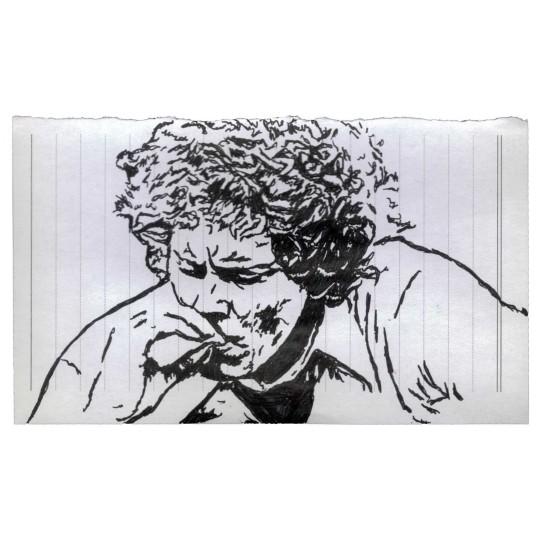
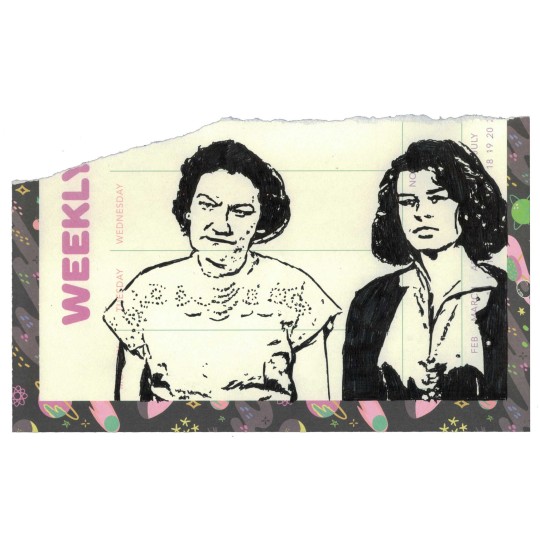
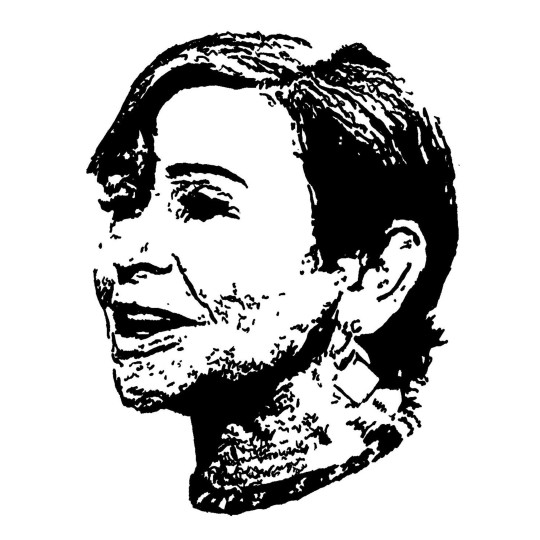
Here's some new art inspired by all three stoner classics!
#the pyramid#the terrible truth#drug stories: narcotic nightmares and hallucinogenic hellrides#gary kent#sid davis#florrie fisher#the trip back#hippie movies#stoner film#avant garde film#art film#art house film#420stoner#420life#anti drug propaganda#tcm underground#social guidance film#stoner comedy movies#stoner movies#movie art#art#drawing#movie history#pop art#modern art#pop surrealism#cult movies#portrait#cult film
2 notes
·
View notes
Text
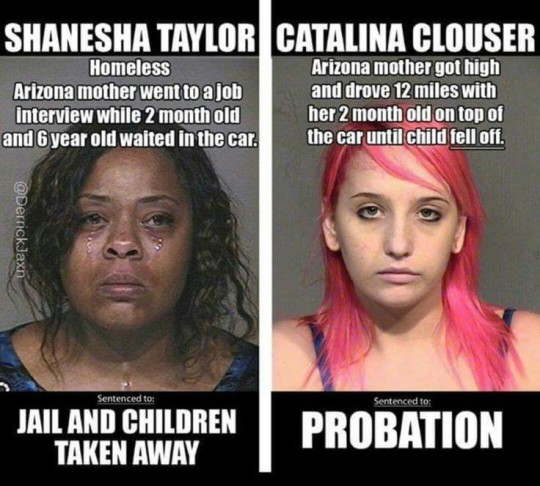
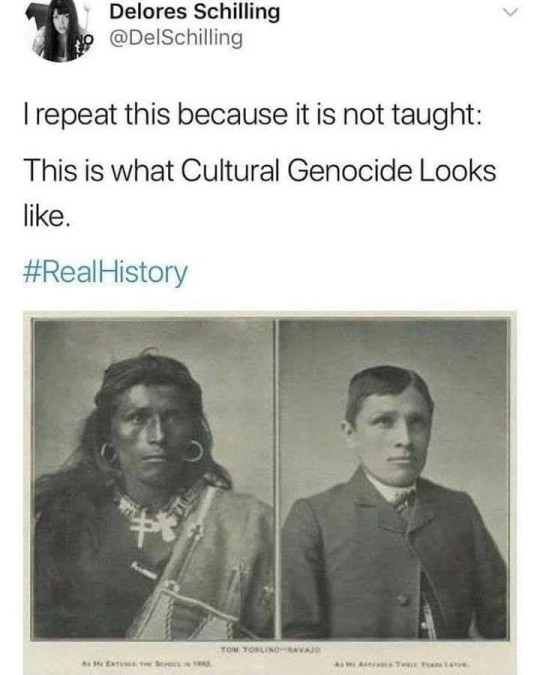
2 notes
·
View notes
Text
Your reminder to *always* manually proofread your work, after Word just autoincorrected “oculists” to “occultists” three times in one paragraph about Norwich Poor Law Guardians funding medical treatment for poor people in the 16th century 🧙🏻👁️🧙🏿
#early modern history#postgrad studyblr#disability history#social history#autoincorrect humour#but were they actually occult oculists tho#does word know the truth#social welfare history
9 notes
·
View notes